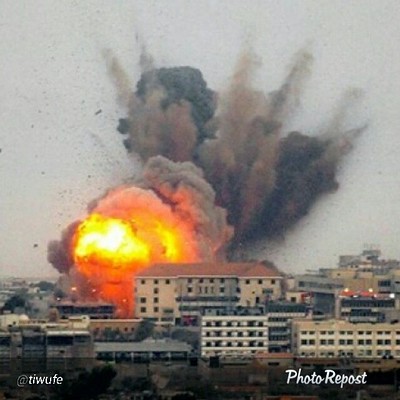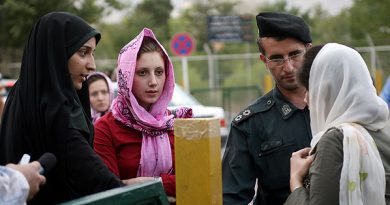Spotlight on the Israel-Hamas War: Political Implications
Neve Walker
Staff Writer
The Israel-Palestine war has been an increasingly deadly conflict since the land was divided up after the fall of the Ottoman Empire. Despite this conflict originating at that point of history, the true conflict ramped up after the second World War, when Israel became a state and there was a mass influx of Jewish people to the area, creating tension between Israelis and ethnic Palestinians and Muslims, as reported in the Global Conflict Tracker.
As tensions rise and technology advances, the war is becoming more dangerous and threatening more people. With the newest attack by the militant group known as Hamas, war has broken out in the area, which raises questions about not only the righteousness of the war but the need for intervention. According to Al Jazeera, at least three thousand Palestinians and 1,400 Israeli citizens have been killed since October 7. Recently, an Israeli air strike in the Gaza region hit the al-Ahli Arab Hospital, killing 500 people. A United Nations-run school which housed refugees was also hit.
The creation of a war cabinet that is focused entirely on the conflict at hand was formed by Former Defense Minister and centrist opposition leader Benny Ganzt, Prime Minister Benjamin Netanyahu and Defense Minister Yoav Gallant, wrote Reuters. Ganzt spoke on Israeli television regarding this cabinet and the nature of the relationship: “Our partnership is not political, it is a shared fate,” said Gantz. “At this time we are all the soldiers of Israel.” Netanyahu also told Israeli media that the people of Israel and the leadership are united. Reuters wrote that the Israeli blockade on Gaza with the reprisal of strikes has killed 1,100, wounded over 5,300, and displaced 250,000 people in the Gaza region. These strikes at the hands of the Israeli military have destroyed over 500 residential buildings in Gaza.
With death and bombings on both sides, the political implications of supporting Palestine or Israel becomes murky. Some people in western countries, such as the United States, have shown their support for Israel. Middle East Eye journalist Ghada Karmi wrote in an opinion article why the creation and state of Israel is vital to the western world. In this pro-Palestinian article Karmi argues that the support of Israel by western countries such as those in Europe is, in a way, representing reparations for the Holocaust. Karmi also argues that the fiscal support the U.S. and other powerful countries send to Israel is a way establishing influence in the Middle East and is used as an agent of imperialism in the area.
Despite these claims about the political advantages the U.S. has for supporting Israel, public opinion and the will of the U.S. citizens can counteract those benefits. According to a Quinnipiac University Poll the majority of Americans support Israel and the sending of weapons in response to the Hamas attack. Additionally, 84 percent of Republican support is are favor of Israel and believe it is a national interest whereas 76 percent of Democrats support Israel. According to the Center for Strategic and International Studies (CSIS), Israel is increasingly stronger than Hamas and will use this attack as an excuse to both defeat Hamas and establish security in Gaza and other places in the West Bank. The report argues that Israel will be able to “create almost any security structure in Gaza that it wants to limit Palestinian action in Israel and the West Bank,” CSIS shares. The political implications of supporting either Israel or Palestine, especially for western countries, will have a strong impact for foreign policy both domestically and within the Middle East.
Image courtesy of Flickr




